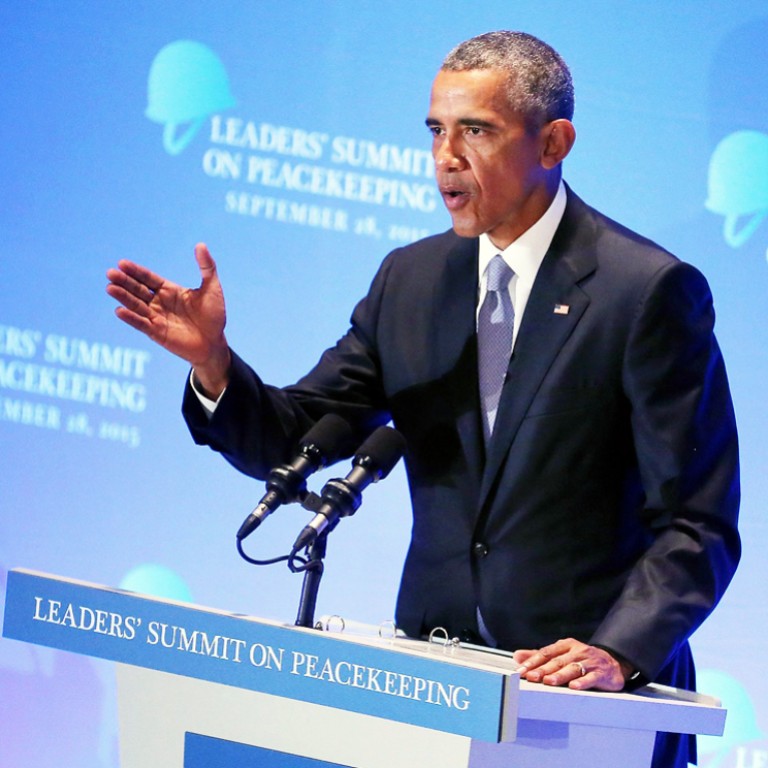
Fifty countries pledge extra 40,000 troops as part of UN peacekeeping upgrade at summit
China's President Xi Jinping promises 'permanent peacekeeping police squad' and 8,000 troops on standby as part of plans outlined by US President Barack Obama during UN General Assembly
US President Barack Obama on Monday announced notable steps to upgrade UN peacekeeping efforts, with his administration saying more than 50 countries have pledged to contribute more than 40,000 new troops and police to serve in some of the world’s most volatile areas.
However, there was no sign that the United States, which pays a quarter of the peacekeeping budget, would put more of its own troops into the field.
Our goal should be to make every new peace operation more efficient and more effective than the last
The US chaired a high-level meeting at the UN General Assembly in New York, which was held to help strengthen and modernise UN peacekeeping.
The UN’s nearly 125,000 personnel increasingly face threats from extremist groups while resources of personnel and equipment are being severely stretched. Deployments to crises can take several months.
“Our goal should be to make every new peace operation more efficient and more effective than the last,” Obama said.
Russian President Vladimir Putin did not attend the meeting – the only absentee among the leaders of the five permanent members of the UN Security Council, which approves peacekeeping missions.
The US ambassador to the UN, Samantha Power, said that in addition to about 40,000 new troops and police, more than 50 countries had pledged to provide more than 40 helicopters, 15 military engineering companies and 10 field hospitals.
Watch: Xi says China "will never pursue hegemony"
Amid a stream of allegations of misconduct and sexual abuse by UN peacekeepers in the Central African Republic, US officials said the surplus troops would also allow the UN to exercise more discretion with its 16 current missions.
“The overwhelming number of peacekeepers serve with honour and decency in extraordinarily difficult situations,” Obama said. “But we have seen some appalling cases of peacekeepers abusing civilians ... and that is totally unacceptable.”
According to the UN website, the US provides 82 of the more than 106,500 people deployed on UN peacekeeping missions: 34 troops, 42 police and six military advisers.
However, Washington pays for more than 28 per cent of the more than US$8.2 billion UN peacekeeping budget.

“When there’s an urgent need and we’re uniquely positioned to help, we’ll undertake engineering projects like building airfields and base camps for new missions,” he said.
During a speech in Brussels in March, Power called on Europe to consider contributing more to UN peacekeeping. She said two decades ago Europeans made up 40 per cent of UN peacekeepers, but that had fallen to about 7 per cent.
More than a dozen European countries backed the US-led move to upgrade UN peacekeeping efforts on Monday.
British Prime Minister David Cameron pledged to send 70 troops and experts to the UN and African Union peacekeeping force in Somalia and up to 300 troops to the UN mission in South Sudan.
“I believe these things are in our own national interest,” Cameron told the summit. “When countries break up, we see the problems of migration can affect us all. When countries become havens to terror, we all suffer as a result.”
The five countries contributing the most troops and police to UN peacekeeping missions are Bangladesh, Ethiopia, India, Pakistan and Rwanda. They all made further pledges at Monday’s summit.
Reuters, Associated Press

